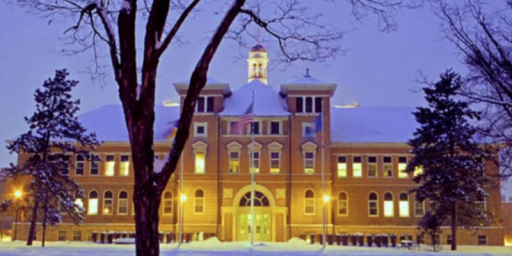Majors with Guaranteed Jobs?
Via Yahoo’s The Lookout blog comes The 10 college majors with the lowest unemployment rates.
The majors in question are:
1. Actuarial Science—0 percent
2. Astronomy and Astrophysics—0 percent
3. Educational Administration and Supervision—0 percent
4. Geological and Geophysical Engineering—0 percent
5. Pharmacology—0 percent
6. School Student Counseling—0 percent
7. Agricultural Economics—1.3 percent
8. Medical Technologies Technicians—1.4 percent
9.Atmospheric Sciences and Meteorology—1.6 percent
10. Environmental Engineering, Nursing, and Nuclear Industrial Radiology and Biological Technologies—2.2 percent
I must confess, I am a bit baffled by #3 (as well as #6) given that there are a rather finite number of slots and state-level cutbacks are substantially affecting education (although, granted, it does always seem that the administrators are the last to go…).
The data come from the Georgetown Center on Educations and the Workforce.






A suggestion if you’re having trouble finding work related to your major: seriously consider moving overseas (assuming you can afford it). There are while continents where those trained in the arts can find gainful employment, particularly Asia.
Ben,
My brother was a classical pianist and moved to Germany for that reason. After 15 years he’s given up and now works in publishing, though still in Germany. There are definitely some better opportunities in the arts overseas but better doesn’t necessarily mean good.
Well of course there’s no unemployment among actuarial science majors. They all calculated precisely how many people should graduate with that degree in each cohort and what degree the people not making the cutoff should switch to.
And #3 isn’t a suprise as in many states there’s actually a shortage of school administrators. They’re considered management, which means they can’t unionize or go on strike, so in many school districts, administration means a ton more work for less pay than a classroom teacher.
My dad was actually an assitant superintendent at a public school district for quite some time and about ten years ago went back to being a regular teacher because it paid way more.
#6 is I bet similarly that anyone qualified to do it could be making far more money as a therapist in private practice
@Stormy Dragon:
FTW
I am not. Admins, supes and counselors seem to expand while actual teachers seem to decline. When I was in corporate life we noticed the same thing; mediators and HR had a limitless growth rate. Cuts always came down the line, except for lawyers.
There’s no point in earning a teaching cert. aside from love of the job. The real stability is in the ever growing bureaucracy. Hell, the school where my niece and nephew go is actively begging for volunteer parents to help in the classroom (to the point where they’ll even let a disreputable thug such as myself try to help) but the Admin. offices have become a ridiculously large presence.
In McLean.
Priorities are screwed.
#2 is what baffles me… I know of one eastern university that recently disestablished its Astronomy department because they were putting out more graduates than there were jobs in the country _every year_.
@Steven L. Taylor:
I think #3 and #6 also have a lot of turnover. I know a woman who recently went back into the classroom after 5 years as a senior administrator, and it seemed like that was pretty common, as was movement between districts for better jobs / spouse’s career / etc. My sister is a social worker employed as a school counselor (as a contractor), and there is constant turnover in her field as well.
#2 probably got on the list because everyone moved on to a graduate program somewhere.
I’m also sceptical because for some of the categories we probably don’t have that large of a population anyway and everyone might just have lucked out this year.
@legion:
I don’t believe these are in-major jobs numbers. And so, astronomers and astrophysicists ace other applicants at, say, programming jobs.
(The numbers I’ve used before have been “working in major” percentages, and “mid-career pay level.”)
(Further digression, my BS was in Chemistry. My dad’s advice was that it was a good degree, because it being a hard major, people would hire me for anything. That seemed to be true. I got programming jobs with it.)
@Stormy Dragon: Therapy and counseling are different professions with different credentialing. I rather think the issue is that school counseling is a master’s degree. In my state, the degree required a teaching background until recently. But in any event, I’m guessing that the problem is that people have been able to find jobs with an undergrad degree and relatively few go back to get a master’s degree. That may certainly change in the next few years.